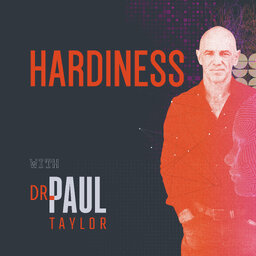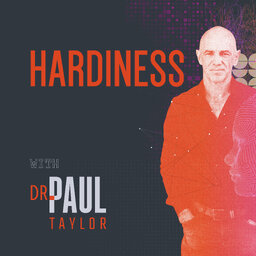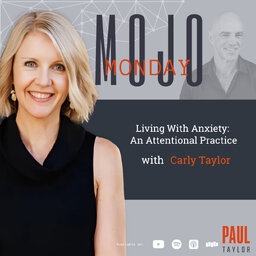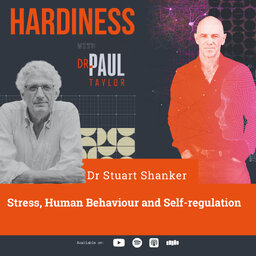Why You Need to be A MITOchondriac Part 2 with Dr. Christabelle Yeoh
In this second part of the mind-blowing conversation on The Paul Taylor Podcast, we explore the fascinating world of cellular health with Dr. Christabelle Yeoh who challenges our understanding of light, cold exposure, and mitochondrial function. Through a blend of cutting-edge science and practical applications, we uncover why sunlight impacts far more than just vitamin D levels, how red-light therapy directly activates your cellular powerhouses, and why your mother's genes might influence your mental health more than previously thought. From the science of cold exposure progression to the truth about trendy NAD+ supplements, this episode breaks down complex biochemistry into actionable steps for optimising your health. Using real-world examples and clinical experience, we tackle common misconceptions about sunlight exposure in Australia and reveal why mastering the basics might be more powerful than advanced biohacking techniques.
Key Topics:
-
Red Light Therapy & Mitochondria: Exploring how red and near-infrared light directly impacts mitochondrial function through Complex IV and cytochrome c oxidase
-
Sunlight & Health Beyond Vitamin D: Australia's sun exposure paradox and the broader impacts of sunlight on hormones, mood, and metabolic health
-
Mitochondrial Psychobiology: Examining the connection between mitochondrial function and psychological health, including maternal inheritance patterns
-
Nutritional Support for Mitochondria: Detailed analysis of how specific nutrients, including B vitamins, NAD+, and methylation support mitochondrial complexes
-
Supplementation Strategies: Critical evaluation of supplements including methylated B vitamins, NMN (Nicotinamide Mononucleotide), and NR (Nicotinamide Riboside)
-
Hormetic Stressors: Overview of beneficial stressors including fasting, cold exposure, and exercise for optimising mitochondrial health
-
Cold Therapy Progression: Practical guidance on introducing cold exposure, from face plunges to cold showers, with emphasis on appropriate progression for different health conditions
Key Takeaways:
-
Prioritise regular sunlight exposure as it directly activates mitochondria and influences hormones, mood, and metabolism beyond just vitamin D production.
-
Begin cold exposure therapy with gentle face plunges or brief cold showers rather than jumping straight into ice baths, especially if dealing with chronic conditions.
-
Incorporate regular fasting into your routine as a fundamental tool for optimising mitochondrial function and metabolic flexibility.
-
Consider personalised B vitamin supplementation based on your individual genetic makeup and health requirements.
-
Support your mitochondrial complexes through targeted nutrition, NAD support for Complex 1, and red light therapy for Complex 4
-
Master the fundamental health practices before advancing to more complex biohacking interventions.
-
Include strategic exercise in your routine as it's a cornerstone of mitochondrial health and function.
Connect with Christabelle Yeoh:
Christabelle Yeoh on LinkedIn
Learn about Next Practice Genbiome Clinic
Learn about Mito Core Clinic
Connect with Paul Taylor:
Learn more about Paul Taylor
Paul Taylor on LinkedIn
Paul Taylor on Instagram
Paul Taylor on YouTube
Support the Podcast:
If you found this episode valuable, please consider subscribing, rating, and leaving a review on your preferred podcast platform. Your support helps us reach more people with important conversations like this one.
Share this episode with someone who might benefit from hearing it—emotional eating is more common than we think, and this conversation could make a difference in someone's life.
 Hardiness with Dr Paul Taylor
Hardiness with Dr Paul Taylor


